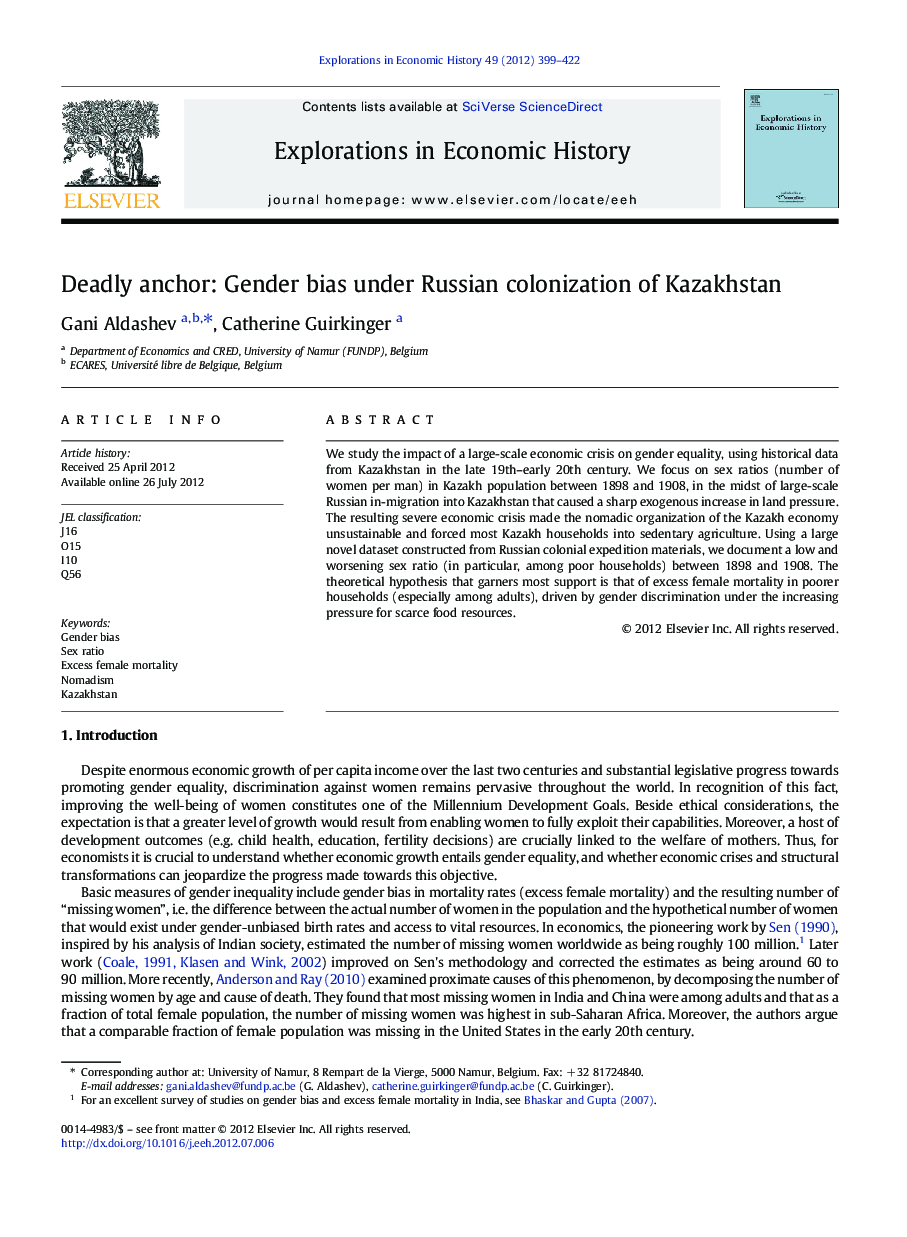| Article ID | Journal | Published Year | Pages | File Type |
|---|---|---|---|---|
| 5068806 | Explorations in Economic History | 2012 | 24 Pages |
We study the impact of a large-scale economic crisis on gender equality, using historical data from Kazakhstan in the late 19th-early 20th century. We focus on sex ratios (number of women per man) in Kazakh population between 1898 and 1908, in the midst of large-scale Russian in-migration into Kazakhstan that caused a sharp exogenous increase in land pressure. The resulting severe economic crisis made the nomadic organization of the Kazakh economy unsustainable and forced most Kazakh households into sedentary agriculture. Using a large novel dataset constructed from Russian colonial expedition materials, we document a low and worsening sex ratio (in particular, among poor households) between 1898 and 1908. The theoretical hypothesis that garners most support is that of excess female mortality in poorer households (especially among adults), driven by gender discrimination under the increasing pressure for scarce food resources.
⺠We study the impact of a large-scale economic crisis on gender equality. ⺠We use a large novel dataset constructed from Russian colonial expedition materials. ⺠Massive Russian in-migration into Kazakhstan caused a severe economic crisis. ⺠Sex ratio (in particular, among poor households) worsened between 1898 and 1908. ⺠Leading explanation is excess female mortality among adults.
